- Home
- Scott Turow
KC09 - Identical Page 13
KC09 - Identical Read online
Page 13
D.B. treated the motion seriously, but as Paul had expected, refused to gag either party, even though the lawyers litigating the case would have to adhere to the rules about comments outside court. Since Paul wasn’t acting as his own counsel, it would be unfair, the judge said, to restrict him, especially in light of the campaign. Paul wondered if D.B. was going to kill him with kindness.
Lands turned then to Tooley’s motions related to the crime-scene evidence and to compelling Paul to give fingerprints and a DNA specimen.
“Mr. Horgan, what do you say?”
To craft their response today, Paul had called a big meeting two days ago in the fishbowl with Crully, Ray, half a dozen campaign officials, even Sofia, who was getting increasingly concerned about the way this run-in with Hal was playing out.
At the podium, Ray still radiated charm and the authority of someone who had been an important figure in these courts for fifty years.
“Your Honor, let me say to start that Senator Gianis will take every reasonable step to prove that Mr. Kronon’s allegations are ill-motivated lies.”
The judge interrupted the grandstanding.
“The motion, Mr. Horgan.”
“Judge Lands, I told Mr. Tooley last week that assuming we get equal access to the evidence, we had no objection to him serving his subpoenas on the authorities in Greenwood County related to public documents in the court file or the fingerprint evidence collected at the scene. They’ve hired Dr. Maurice Dickerman as their fingerprint expert, and I see Dr. Dickerman in court today.” Ray turned from the podium and lifted a hand like a ringmaster. On cue, Mo Dickerman, the so-called Fingerprint God, stood for just a second in the back of the courtroom, in his dark suit. A skinny angular man, Mo used a finger to push his heavy black frames back up on his nose. Dickerman was the longtime chief of the Kindle County Unified Police Force’s fingerprint lab. Like all police employees, he was permitted to work after hours on his own. “Senator Gianis will produce his fingerprints to Dr. Dickerman whenever the court orders, even today.”
Ray stopped there.
Du Bois nodded, as if to say, ‘Reasonable enough.’ Now in his late forties, Judge Lands remained handsome, with close-cropped hair, a mid-tone complexion and those startling gray eyes.
“Your Honor,” said Tooley, “we still haven’t heard any answer to our request for DNA.”
Du Bois raised his hand toward Ray, who responded.
“Judge, we’re eager to come forward with all probative evidence, but this request for a DNA test is clearly a bridge too far. In order to be entitled to discovery, a party must show that there is a reasonable likelihood that whatever proof is sought is potentially relevant. Dr. Yavem concedes that there is no better than a one in one hundred chance that an examination of DNA will lead to admissible evidence in a case like this with identical twins. So that part of the motion is little more than an effort to embarrass and harass Senator Gianis.”
“Your Honor,” answered Tooley, “this is not a matter of percentages. And even if it were, why wouldn’t Senator Gianis want to take a test that has a 99 percent chance of not incriminating him?” This was a non sequitur, an answer aimed only at the reporters. Du Bois, nobody’s fool, understood the posturing and had heard enough. Up on the bench, he dropped the pen with which he was taking notes and pushed aside his papers.
“Here’s what we’re going to do,” the judge said. “Some of what’s been requested doesn’t appear to be at issue. So, Mr. Tooley, I’m going to grant your motion in part and approve these subpoenas you’ve served out in Greenwood County on the police and the court related to the police reports and the fingerprint evidence, with the proviso that the full return on the subpoenas be shared at once with Mr. Horgan. Second, because the fingerprinting doesn’t seem to be in dispute, I’ll allow you, Mr. Tooley, to issue any other subpoenas directly related to the issue, and the court will accept Senator Gianis’s offer to provide fingerprints, and I will direct that he do so.”
“We’ll do it right here, right now in open court, Judge,” said Ray. The intention was to play to the press and it worked. The journalists in the front row were tapping away or scribbling as fast as they could.
“Thank you, Mr. Horgan, but I don’t think we need to turn my courtroom into a crime lab.” There was a riffle of laughter.
“Then we’ll go right down to the lobby to do it with Dr. Dickerman.”
Du Bois moved the back of his hand as if to say, ‘Whatever.’
“I did have a thought about Dr. Dickerman,” the judge said.
Mo stood up again in the back of the courtroom and walked toward the bench. No one had ever accused Mo of being reluctant about attention. The judge proposed that Mo be appointed the court’s expert, with the parties splitting his fee. Mo was renowned around the world, probably the most widely respected print expert in the US, outside the FBI. No one was likely to contradict him, anyway. Ray agreed immediately, fulsomely praising the judge’s idea. D.B. acted as if he hadn’t heard.
“So I’ll direct that whatever fingerprint evidence is found be delivered to Dr. Dickerman,” Lands said. “If the fingerprint lifts from the scene remain in a condition where current comparisons are likely to be probative, then he should compare those prints to the ones he gets from Senator Gianis today.”
“And the DNA?” asked Tooley yet again. Clearly, Hal was hot to do that test.
“Well, you know, Mr. Tooley, Mr. Horgan may have a point. I’m not sure you get to run a test that your own expert says is overwhelmingly likely to be unproductive. But I’ll withhold my ruling. I’ll give Mr. Horgan a week to file a written response about it; you, Mr. Tooley, will get a week to reply. By then, Dr. Dickerman may have the fingerprint results, and those may inform my ruling on the DNA. So let’s meet again then. Mr. Clerk, please give us a date.”
“February twentieth at 10 a.m.”
“That will be the order,” said Du Bois. Watching from the plaintiff’s table, Paul thought he would not have ruled differently. Du Bois had been fair and savvy and measured.
The judge called a recess and rose on the bench, which brought everyone else in the courtroom to their feet. From that vantage, D.B. looked for the first time directly at Paul. The glance was fleet, but seemed to have been accompanied by an expression somewhere between a grimace and a smile. ‘See?’ he seemed to say.
14.
Dickerman—February 5, 2008
It had been years since Tim had entered the Temple, as the Kindle County Superior Court Law and Equity Department was known. Constructed of buff-colored brick in the 1950s, the building had the proportions of an armory, with a dome above bleeding weak light down in the central rotunda, through which at 9:00 a.m. a determined crush swirled. Tim’s natural terrain had been the Central Branch courthouse a few blocks away, where criminal cases were heard. In here, he still felt like a tourist, and after he passed through the metal detectors, he found a uniformed security guy to direct him to Du Bois Lands’s courtroom on the fourth floor.
Tim had known Du Bois’s uncle well, but only while Crowthers was an attorney. Nonetheless, the impression Sherm had made remained vivid, since there was no defense lawyer whose cross-examinations Tim liked less. Sherm tended to terrorize a witness, yelling in that booming voice, mocking and badgering, looming over the witness box so that his sheer size was yet another instrument of intimidation. In one murder case, Sherm had taken the weapon found at the scene and pointed the pistol at Tim for a good ten minutes as he questioned him, before the deputy PA finally responded to Tim’s pleading looks and objected. Like everybody else in the courtroom, the prosecutor had been mesmerized by Sherm.
Tim had come to court today at Mel Tooley’s request, so he could go at once to serve any new subpoenas the judge approved. With Ray Horgan’s agreement, Tim had already dropped off other subpoenas last week out in Greenwood County, and yesterday had brought the fingerprint lifts and reports produced in response to Mo Dickerman’s office.
Tim was s
itting in the back of the courtroom when Dickerman came in and caught sight of him. He slid over on the bench to make room. Tim had been through God knew how many cases with Mo, who was just coming up when Tim was already a detective lieutenant. He had probably been the first dick to recognize how exceptional Dickerman was—a great witness and unusually learned in his field. Eventually, Tim recommended Mo for promotion over several guys senior to him. As a result, Mo had always been somewhat in Tim’s debt, and Tim had gotten along with him as well as anybody did. As a guy, Mo would never really pass as warm, and he was so up on himself these days that he had fewer friends than ever in McGrath Hall.
Mo was past seventy now—around seventy-two, Tim thought, which made him the oldest employee of the police force. Yet he was too famous to be forced into retirement, and the County Board grandfathered him every year. He was one of those thin guys who didn’t age much, but you could see some wear on him, more weariness in his long face and plenty of gray now in his thinning hair. Around the eyes there was a sad gathering of puffy, wattled flesh. Like Tim, Mo was now a widower. His wife Sally had died only a few months back and you could see the evidence of that, too, in a watery vacancy that had replaced Mo’s prior intensity. Tim grabbed Dickerman’s knee as he sat.
“How is it with you, boyo?” Tim asked. “You OK?” Dickerman had been out when Tim dropped off the subpoenaed evidence yesterday.
Mo made a face. He knew Tim was talking about Sally’s passing. For Tim, Maria’s death fell into the broad category of things you couldn’t do anything about, and he usually spoke with great reluctance about those years—shuttling her for treatments, shopping with her for wigs, sitting in the waiting room with his insides scoured by worry during the course of three lengthy surgeries, his daughters’ weeping as soon as they caught sight of their mom, whenever they came to town. But Mo clearly was of the other school, talking about Sally constantly so he could believe it himself. Telling Tim the story now, Mo leaned down in the yellowish courtroom pew, ostensibly to keep their conversation private, but it looked as if the memory had doubled him in pain.
“When they found the lump, I was thinking, ‘Oh, Jesus Christ, she’s going to lose her tits,’ and then after we saw the big-deal specialist at the U, I’d have gotten on my knees for him to tell me that was all there was to it. There was nothing to do. They tried, but they just made her miserable. At the end she begged me not to ask her to do anything else. She didn’t last eight months from diagnosis to the funeral.”
Tim very briefly covered Mo’s hand with his own. You live with somebody, peaceably, dreaming beside each other, sharing meals, making a family, but there seems no special excitement to it, even though you know, as Tim did, that you’re living with a person of exceptional kindness. And then she’s gone and the depth of the loss almost surpasses understanding, even when you realize you’re also mourning your loneliness, and the inevitability of it.
Judge Lands came on the bench then and they both stood. The clerk called Kronon’s case first.
Tooley and Horgan strolled forward from their respective tables, two stout fellows looking a bit like a bride and groom as they met in the center of the courtroom before Tooley preceded Ray to the podium.
Du Bois was one of those judges who knew his business and didn’t waste time. As a cop, Tim had never been all that keen about judges. Many just seemed to get in the way, with a fair number of them thinking the whole case was about them. Whoever went to a baseball game to see the umpire?
At the front of the courtroom, the lawyers bickered while Lands kept control. A couple of times, Mo was mentioned and he popped up beside Tim. Eventually, the judge asked Mo to step forward. He moved toward the bench stiffly. He’d been a basketball player years ago, as Tim recalled, and he was clearly having trouble with his knees.
When court broke, Tim made his way up to the defense table where Tooley, as usual, had his hands full with Hal. Kronon had realized that Paul and his team had gotten exactly what they wanted. TV cameramen were barred from any other part of the courthouse, except the rotunda. By going down there to give his prints, Gianis would be able to mount a show for the evening news.
“Fucking publicity stunt,” Kronon said.
“Hal,” Tooley said, “he was going to get to do this in front of the cameras, no matter what. It’s a public proceeding.”
Horgan’s associate came by and asked if they wanted to witness the fingerprinting, and the three made their way downstairs. Dickerman had set up shop on the stone ledge that decorated the Temple’s central hallway. At Dickerman’s instruction, Paul had gone off to wash his hands, and he returned now, striding through the lobby, several steps in front of Ray Horgan, as the xenon beams of the cameras came on simultaneously, flooding the hallway with their glare. Gianis slid off his suit coat, handing it to one of the young campaign aides, then removed his cuff links and rolled up his sleeves.
In Tim’s day, Mo would have taken the prints by inking Paul’s fingers and palms and rolling them on a piece of stiff paper called a ten-card. That remained the procedure in most police stations, but Mo preferred a digital impression, called “live scan.” For his private consulting business, Mo owned his own equipment, and he had his assistant, probably a grad student from the U where Mo taught, bring the metal jumpkit from which Dickerman extracted the scanner, which was about the size of an adding machine. Mo connected the scanner to his laptop and took several different versions of Paul’s prints. The first was a four-finger slap, then Dickerman bore down on each of Paul’s fingers, rolling it across a white band beneath the scanner’s platen. The images popped up immediately on his computer screen, as the camera guys fought each other for close-ups. For safety’s sake, Mo also took impressions on paper, using one of the new inkless pads.
Hal had seen enough and drew both Tim and Tooley aside.
“He’ll never match anything,” Kronon said about Paul. “His prints won’t be anywhere in that room. That’s why he’s making such a show of it. He looks like a vaudeville magician rolling up his sleeves.”
“That was always the risk, Hal,” Tooley told him.
“We should withdraw the motion.”
“It was just granted. We can’t withdraw it.”
“He won’t match. And because he doesn’t match, and the DNA is no better than one in a hundred, his asshole buddy, Du Bois, will then deny the motion for the DNA, too. I want the goddamned DNA.”
Accustomed to Hal’s pique and the irrationality that was often part of it, Tooley remained silent for a second, before venturing the obvious.
“It means something, Hal, if his fingerprints aren’t there. We can’t pretend it doesn’t.”
“It doesn’t mean crap.”
Tooley rolled his eyes at Tim and announced he was going back to his office. Hal’s Bentley had rolled to the curb. Alone, Tim returned to witness the last of the fingerprinting, but Gianis was already slipping his cuff links back in. Fitting the scanner into the foam cushion inside the metal case, Mo caught sight of Tim and gestured for him to wait. It was another ten minutes because several of the reporters wanted to talk to Mo, too. By the time Dickerman came over, Tim and he were alone in the marble hall.
“I meant to tell you before,” Mo said, “but I got distracted about Sally. You’re gonna have to get your rear end back out to Greenwood County.”
“And why’s that?”
“I’m gonna need Cass’s fingerprints, too, and they weren’t in that mess you brought over yesterday.”
“Cass?” Tim asked. “I thought he has different fingerprints from Paul.”
“No, that’s true. But telling them apart in a situation like this—it’s not that easy.” As he often did, Mo reverted to a lecture, explaining that most of what showed up in twins’ fingerprints, the basic skin patterns of loops and whorls and ridges, was identical, the product of shared genes. Subtle variations emerged during development, when the fetus touched the uterine wall, or itself, causing differences in what print examiners
called ‘the minutiae,’ the areas where skin ridges ended or branched or ran together.
“Don’t misunderstand,” said Mo. “If I give any decent examiner ten-cards from Paul and Cass Gianis, they’d see enough to distinguish. But you know better than I do that latents at a crime scene don’t come in ten-finger sets. You get partials, a couple of fingers, whatever. You understand all that. And with, say, a partial print, you may not be able to tell which twin it’s from.
“So you know, the best way to do this kind of comparison is to start out with the ten-card from each man and isolate the differing points. When I didn’t get Cass’s prints from Greenwood, I called Tooley to get him to call the PA’s office. In the meantime, he sent over Cass’s intake prints from Hillcrest, which I guess he got when he subpoenaed Cass’s file for the pardon and parole hearing. It’s a laser copy. High-res, but it’s a copy. Nobody can testify from that. Which is why I need you to go back out to Greenwood and make them find Cass’s ten-card.”
“Got it, Boss,” said Tim. He thought calling Mo ‘Boss’ might get a smile, but Dickerman stood there, looking nettled instead. Something was weighing on him.
“There’s one other thing,” said Mo. “Which maybe you can help me figure out.”
Tim shrugged, feeling somewhat flattered. Generally, Mo didn’t think he needed any help figuring out anything.
“When I got that copy of Cass’s prints,” said Mo, “I decided I could use them at least to do some prep. I’ve got to go over to Italy for a week to give a lecture—”
“Poor soul,” said Tim.
“Yeah, it’s tough. But I wanted to get a head start. I had Logan Boerkle’s report from 1983 where he identified Cass’s prints. I figured I’d see what part of each print Logan had relied on, and then when I got Paul’s card today, I’d have someplace to start the comparison.”

 Testimony
Testimony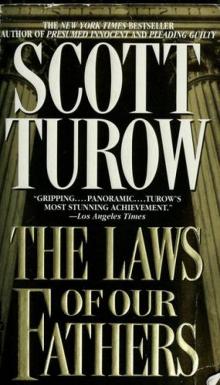 The Laws of Our Fathers
The Laws of Our Fathers Ordinary Heroes
Ordinary Heroes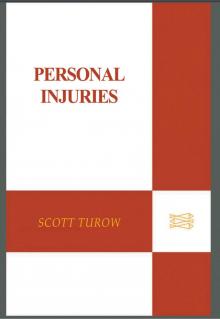 Personal Injuries
Personal Injuries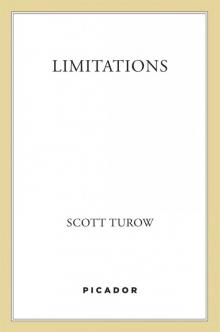 Limitations
Limitations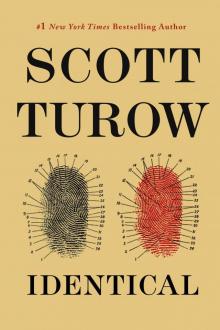 Identical
Identical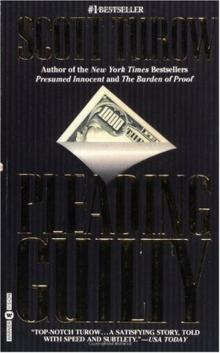 Pleading Guilty
Pleading Guilty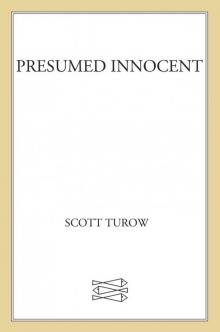 Presumed Innocent
Presumed Innocent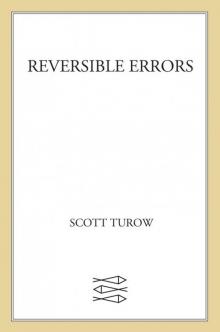 Reversible Errors
Reversible Errors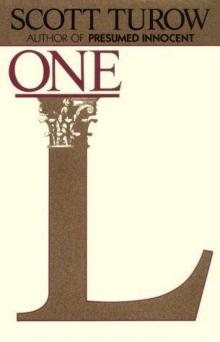 One L: The Turbulent True Story of a First Year at Harvard Law School
One L: The Turbulent True Story of a First Year at Harvard Law School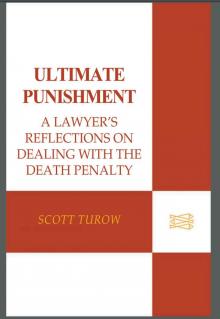 Ultimate Punishment
Ultimate Punishment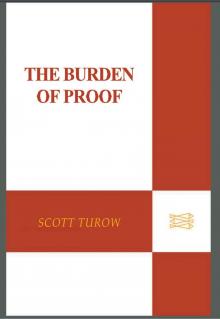 The Burden of Proof
The Burden of Proof Ordinary Heroes (2005)
Ordinary Heroes (2005)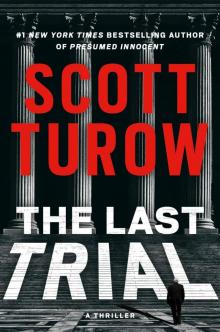 The Last Trial
The Last Trial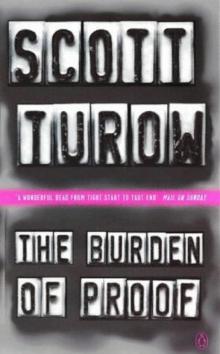 The Burden of Proof kc-2
The Burden of Proof kc-2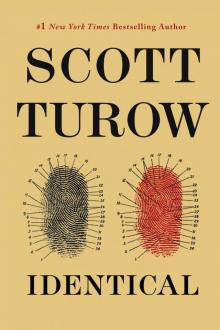 KC09 - Identical
KC09 - Identical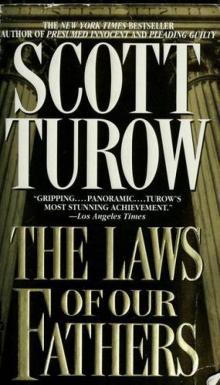 The Laws of our Fathers kc-4
The Laws of our Fathers kc-4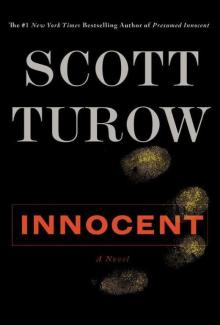 Innocent kc-8
Innocent kc-8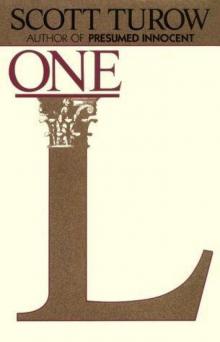 One L
One L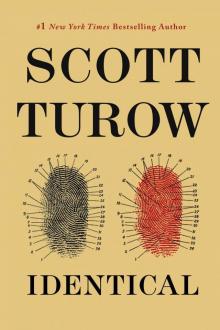 Identical kc-9
Identical kc-9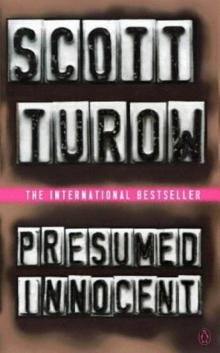 Presumed innocent kc-1
Presumed innocent kc-1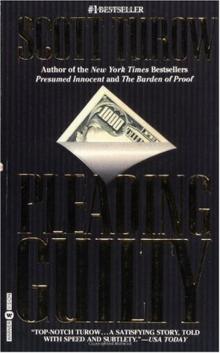 Pleading Guilty kc-3
Pleading Guilty kc-3 One L (1977)
One L (1977)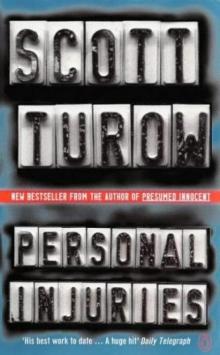 Personal injuries kc-5
Personal injuries kc-5